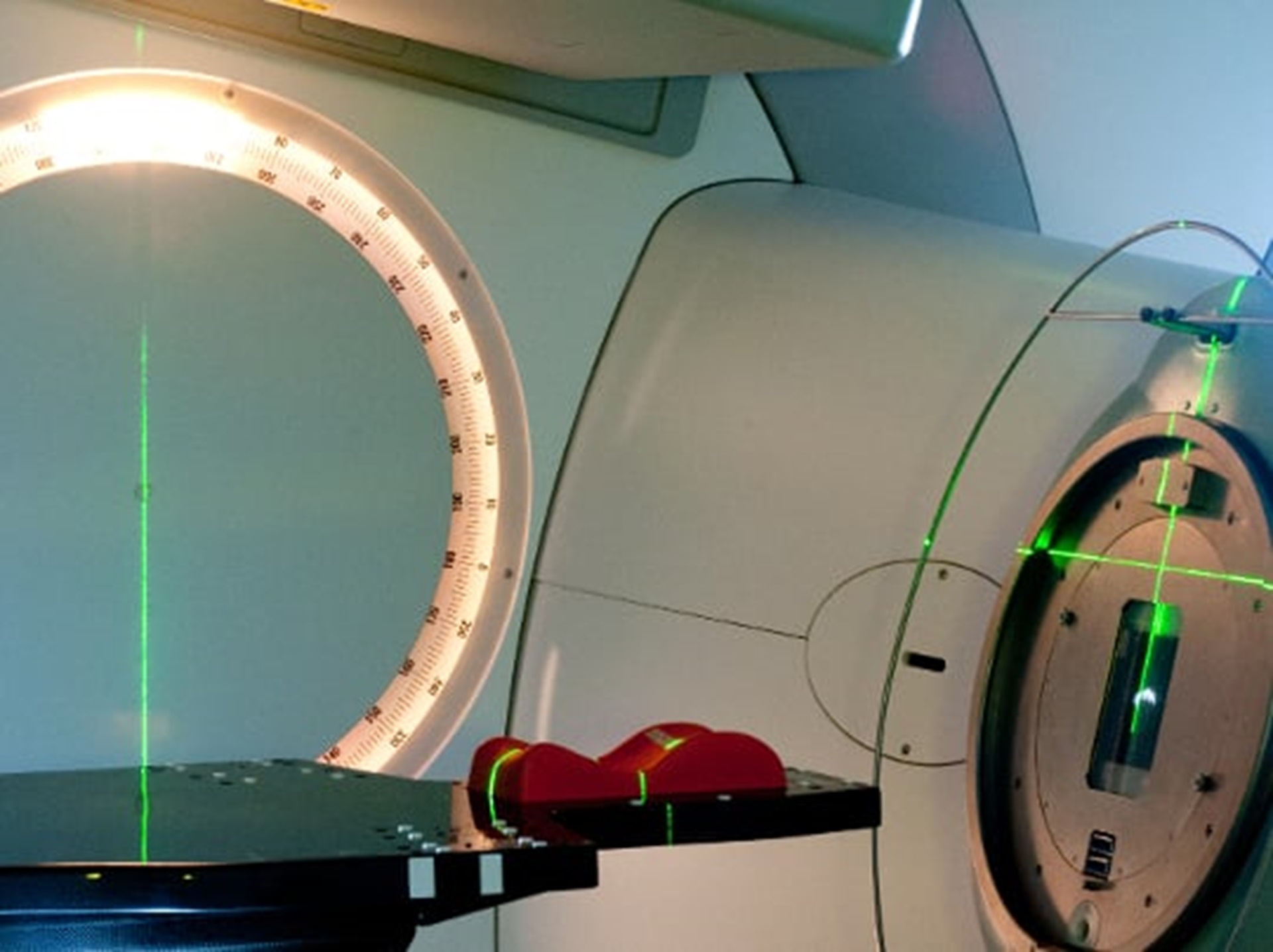Changes to practice for prostate cancer radiotherapy could save the NHS tens of millions of pounds per year and reduce side-effects and inconvenience for patients, say the leaders of a major phase III clinical trial.
Researchers will present results of the major CHHiP trial today, showing the effectiveness of using a modern type of radiotherapy in higher doses over fewer hospital visits than is currently recommended on the NHS.
The trial leaders, from The Institute of Cancer Research, London, and The Royal Marsden NHS Foundation Trust, said the findings supported a change in practice for prostate cancer radiotherapy, with daily treatment given in higher doses over 20 days, rather than lower doses over 37 days as happens now.
Similar trials from the same research group – led by The Institute of Cancer Research (ICR) and The Royal Marsden, and including more than 70 UK centres –proved the benefits of fewer, higher doses of radiation in breast cancer, and helped set NICE guidance that has saved the NHS around £50 million a year since 2009.
The new regime for prostate cancer would save 17 hospital trips and complex radiotherapy treatments for each patient leading to a reduction nationally of more than 150,000 visits per year.
Researchers will present the results after five years of the CHHiP trial at the National Cancer Research Institute (NCRI) Cancer Conference in Liverpool. They will tell delegates:
- The CHHiP trial has introduced modern quality-assured ‘intensity-modulated’ radiotherapy for prostate cancer to dozens of research centres across the UK.
- Treatment with fewer, higher doses of intensity-modulated radiotherapy than currently offered by the NHS delays progression of prostate cancer at least as effectively as greater numbers of lower doses.
- Treatment with fewer, higher doses of intensity-modulated radiotherapy is just as good for quality of life as the longer, lower-dose regime, and is associated with less than half the rate of side-effects of older conformal radiotherapy
- Taken together, the findings provide strong evidence to support a change in clinical practice for prostate cancer radiotherapy.
The trial, funded by Cancer Research UK, involved more than 3,200 men and compared the standard radiotherapy schedule of 37 doses of 2 Grays per day with two other regimes – one delivering 19 doses of 3 Gray per day, and the other 20 doses of 3 Gray per day. The results showed that the 20-dose schedule is not inferior to the 37-dose schedule for treatment effectiveness or quality of life.
Lead investigator Professor David Dearnaley, Professor of Uro-Oncology at The Institute of Cancer Research, London, and Consultant at The Royal Marsden, said:
“Our study shows that the new regime of fewer, larger doses of modern intensity-modulated radiotherapy is at least as effective as the current standard and does not cause higher rates of side-effects. Indeed, side-effects with either regime were less than half what they were in a previous trial of older, conformal radiotherapy.
“Overall our results make a compelling case to change practice within the NHS and move from a 37-day regime to one that lasts 20 days. As well as saving men from repeated hospital visits, this could save tens of millions of pounds per year.”
Study co-leader Dr Emma Hall, Deputy Director of the Cancer Research UK-funded Clinical Trials and Statistics Unit at The Institute of Cancer Research, London, which co-ordinated the study, said:
“Historically we’ve seen radiotherapy given in smaller doses over quite extended periods of time – and in prostate cancer treatment, the standard is still more than five weeks of daily treatment.
“But radiotherapy technology has developed over recent years, meaning we can target doses to tumours more accurately and reduce the dose to surrounding tissue. Our trial shows that modern radiotherapy allows men to undergo fewer, higher doses for the same result, both in terms of treatment effectiveness and quality of life.”
Professor Malcolm Mason, Cancer Research UK’s prostate cancer expert, said:
"These results are great news for men. From a logistical and patient convenience point of view, being able to treat patients over a shorter period of time has been a goal for specialists, but the question has always been whether it was safe to do so. This study shows that it is safe and effective, and there should be no reason why this cannot be implemented immediately – it is saving the NHS resources.
"But there are still questions we need answers to. It’s not impossible that fewer, but bigger fractions of radiotherapy might be still better at controlling the disease, but this would need more data from large clinical trials to answer. We look forward to seeing more research – perhaps by combining this and similar studies. It’s also valuable to see the impact of the shorter treatment on side effects. Reassuringly, these are no different to the older, standard treatment.
“Treating patients in this way means that special attention should be paid to the very best radiotherapy planning, including the need for the most sophisticated equipment and looking at whether newer techniques like intensity modulated radiotherapy – IMRT – might be especially useful in this setting.”
